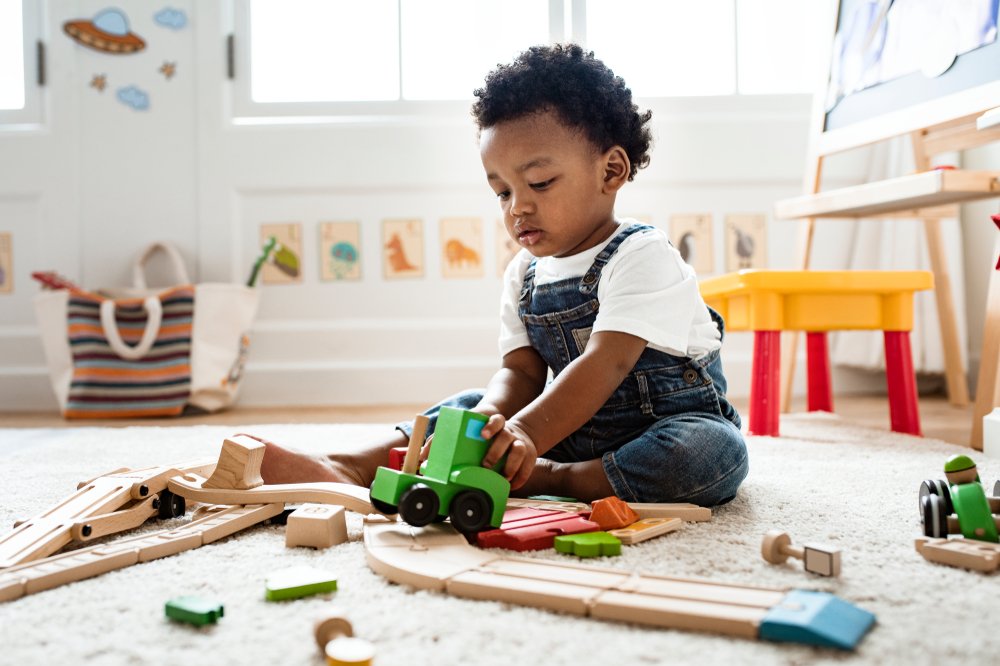Key points:
1. Play is vital for a child’s development, helping them learn, build relationships, and develop essential life skills.
2. Toddlers can start learning to play independently from as early as 9-10 months, fostering creativity, self-esteem, and independence.
3. Encourage independence by providing a safe play environment and using a variety of toys and textures.
4. Engage in parallel play with your child, limit screen time, and trust in their capacity for exploration and creativity.
Play is an essential part of your child’s development. Here’s where they learn how the world works, develop relationships, and build the skills they’ll need for everyday activities. Play is essential for the development of your child’s independence.
An important part of the toddlerhood stage involves your little one learning how to explore and play by themselves. Learning this provides them with opportunities to understand how objects work, be creative, foster their self-esteem, and get motivated to take on future challenges. As little as 9-10 months you can encourage your child to play alone while you remain nearby.
How can I forster my child’s independence?
- Make them feel safe: Your little one will feel they can move and discover what’s around them if they play in a supportive and safe environment. You’ll also feel confident to encourage their independence if you know they can’t get hurt. Play yards are a great safe zone for them. These places will allow you to be near them and supervise them while giving them a chance to explore their toys and even practice crawling, sitting, pulling up, and cruising around.
- Swap toys around: Keep the toys you know they like near; the ones that they know how to manipulate and are familiar with. However, every now and then leave a new one to catch their attention. It doesn’t have to be a brand-new toy, you can always use old ones or even take some and hide them for a week or so and introduce them again.
- Explore with different types of toys: One of the ways your little one learns about their environment is through the senses. Try to involve different textures, smells, and sounds. Toys with buttons and wheels will also grab their attention. They’ll be so intrigued by those toys they’ll want to discover how they work. They’ll also love repetition as they figure out how things work, so you might see them filling the same box with objects over and over again.
- Follow their lead: Observe the things that they’re interested in and get those involved. They might be into noisy instruments, constructive play with blocks, or they might be drawn to book illustrations. Everyone has different preferences so keep this in mind when encouraging them to entertain themselves.
- Practice parallel play: In this type of play, you’ll be playing side by side with your little one without interacting or playing with them. Even though it might seem they’re doing their own thing, they are watching your moves and learning through them. The fact that you are setting the example while allowing them the space to figure it out on their own fosters their independence, decision-making, and problem-solving skills.
- Limit screen time: We’ve previously talked about your little one’s exposure to screen time. When screen time becomes a habit, it provides so much sensory stimulation that a regular toy can have a hard time competing with that. Avoid having the TV on as background noise and instead have colorful toys your child can be drawn to play with.
Trust that you don’t need to entertain your little one every minute of every day and try to encourage your child’s independence through short, yet meaningful periods of time where they can explore the world by themselves. Your little one has a huge capacity for playing, learning, being creative, and inventive.








